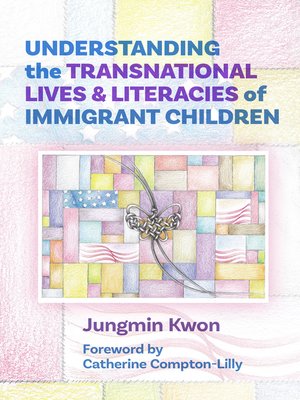Understanding the Transnational Lives and Literacies of Immigrant Children
ebook ∣ Language and Literacy
By Jungmin Kwon

Sign up to save your library
With an OverDrive account, you can save your favorite libraries for at-a-glance information about availability. Find out more about OverDrive accounts.
Find this title in Libby, the library reading app by OverDrive.



Search for a digital library with this title
Title found at these libraries:
| Library Name | Distance |
|---|---|
| Loading... |
This book provides targeted suggestions that educators can use to ensure successful teaching and learning with today's growing population of transnational, multilingual students. The text offers insights based on the author's observations, interactions, and interviews with second-generation immigrant children, their families, and their teachers in the United States and South Korea. These collected stories give educators a better understanding of how elementary school children engage in language, literacy, and learning in and across spaces and countries; the forms of unique linguistic and cultural knowledge immigrant children build, expand, and mobilize as they move across contexts; the ways in which immigrant children position themselves and represent their identities; and how educators and researchers can honor these children's identities and unique talents. Featuring children's narratives, drawings, writings, maps, and photographs, this resource is must-reading for educators and researchers seeking to create more inclusive learning spaces and literacy practices.
Book Features:







